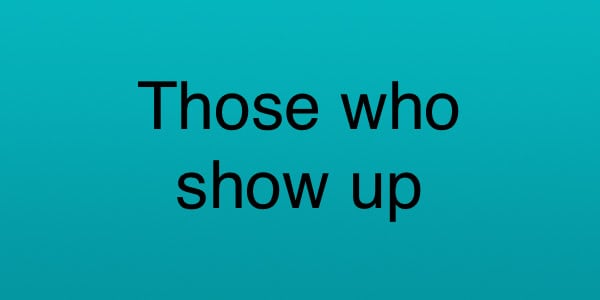Why Can’t I …? (WT786)
BlogToday’s thought might be a bit confronting as we ask and answer what I think is a deep question.
This week I had scheduled to run 3 x 2 hour presentations, “How to Succeed as a Solopreneur”.
On Sunday afternoon I lost it.
I’d spent practically all weekend preparing and practising.
In tears, I cried to Ross, “How come I can’t be like everybody else?”
“Why can’t I be happy to just work for someone and have weekends and evenings off, like other normal people? How come I always seem to be working on the weekend? Why do I put so much pressure on myself?”
Of course Ross knew too well to even attempt to answer that question because he knew it wasn’t a real question.
It was my way of expressing my fear that the presentations may not be whatever I deemed to be “successful”.
During the week I shared this story with a colleague and added, “I’m unemployable” to which she replied, “No you’re not, you’ve got so many skills and so much to offer”.
I corrected my communication, “I mean my attitude.”
And here is the confronting part, there is no such thing as “normal”.
We are all individuals.
We all have unique gifts and talents that we bring to the world.
At times we can be challenged to show up, however I want to encourage you to stay true to who you are and to not compare yourself with anyone else or look to the other side of the fence, thinking the grass is greener.
Whether you’re an employee or an employer or a solopreneur or a stay at home mum or dad or carer, whatever you choose is OK as long as you are choosing it.
After I got over my little tanty, I settled down and focussed on being grateful.
I am grateful that I have the freedom to choose to work on weekends.
I am grateful that I have the freedom to choose what I want to work on and with whom.
How about you?
If you find yourself asking, “Why can’t I …..?” how about reframing your question to “How lucky am I, I get to ….?
When we understand that everything in life is a choice, we take back our power.
If you find yourself having a tanty and saying things you don’t really mean, look to what’s underneath that. Ask yourself “What’s going on here? What’s the real issue?”
I’ll wager that it’s not the thing you’re complaining about.
P.S. Invite your friends to get the Weekly Thought delivered directly to their inbox.













